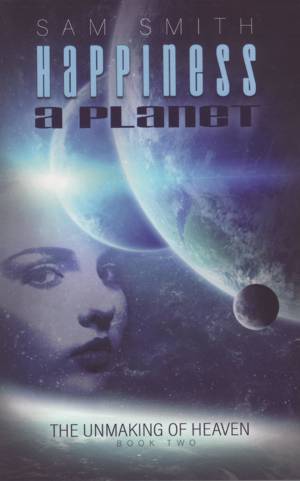
- Retrait gratuit dans votre magasin Club
- 7.000.000 titres dans notre catalogue
- Payer en toute sécurité
- Toujours un magasin près de chez vous
- Retrait gratuit dans votre magasin Club
- 7.000.0000 titres dans notre catalogue
- Payer en toute sécurité
- Toujours un magasin près de chez vous
Description
Happiness is the name of a planet, whose moon one day disappears. At the same time that the moon disappears all radio (speed of light) communication to and from that planet is blocked. Within the same intergalactic empire as Balant only farmers and cranks live on planets. An unseen force destroys any craft that tries to leave the planet…. During the investigation into the missing moon, there are 2 love affairs and many considerations upon the nature of intelligence, government and society.
This story is told in the third person from the viewpoint of its many different characters - a young girl called Belid Keal, a bureaucratic Head of Department called Munred Danporr, Drin Ligure a novice policeman, Petre Fanne an over-the-hill gymnast, Anton Singh a mysterious businessman; along with 'Dr' Tevor Cade, several Senators, the maverick bureaucrat Jorge Arbatov; and, among others, the two principal characters - Awen Mendawer, a photographer, and our heroinne, the astrophysicist Tulla Yorke.
This is from a review by Geoff Nelder.
'This is Sam Smith's second novel in the five-part science fiction series, towards the unMaking of Heaven. I enjoyed the first in the series, Balant, about three young men marooned on a sometimes hostile planet, and so eagerly anticipated a good read with Happiness. I was not disappointed. Again this is a young adult novel but with such intelligent writing in the subplots and philosophical explorations that adults would benefit from its read.
Happiness is a strange name for a planet, but like most bizarre appellations for people and places, the reader soon feels they've known it for years. Indeed the planet's population are far from happy when they discover their moon disappears overnight along with the ability to send and receive radio transmissions to nearby planets. Like all good mysteries the oddities increase before solutions begin to show themselves. The story is told through the experiences of a dozen characters lending their experiences and unique take on the events so the reader can form his or her own opinion. Not all the viewpoint characters survive – this is no soft story, but a mix of survival and a search for answers.
A game I play in reading novels is to seek phrases I wish I'd written. Sam Smith doesn't disappoint me. Savour this worldly-wise assertion: 'Munred ... became a participant in one of Mankind's greatest exercises in futility – a self-perpetuating folly – namely the gaining of experience.' It is this kind of stick-pointing at the norm that I love about Sam Smith's writing. Again: 'Policemen are not scientists. If they are expert in any field it is in applied psychology.' So apt.
Once again Sam Smith has taken me to a strange planet and made me care what happened to its population and indeed, its moon. A thoroughly recommended read to any science fiction fan and young reader of adventure, imagination and mystery.'
Spécifications
Parties prenantes
- Auteur(s) :
- Editeur:
Contenu
- Langue:
- Anglais
- Collection :
Caractéristiques
- EAN:
- 9780463045114
- Date de parution :
- 06-06-22
- Format:
- Ebook
- Protection digitale:
- /
- Format numérique:
- ePub

Les avis
Nous publions uniquement les avis qui respectent les conditions requises. Consultez nos conditions pour les avis.






